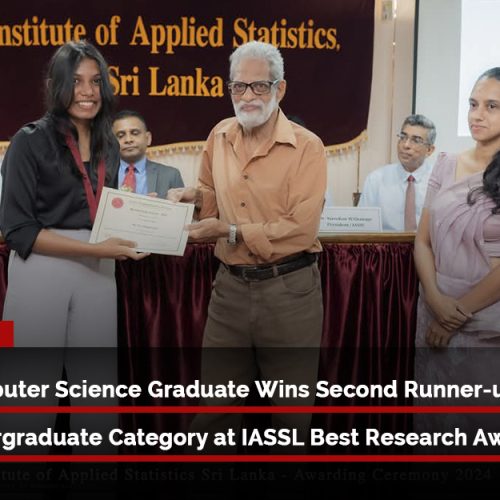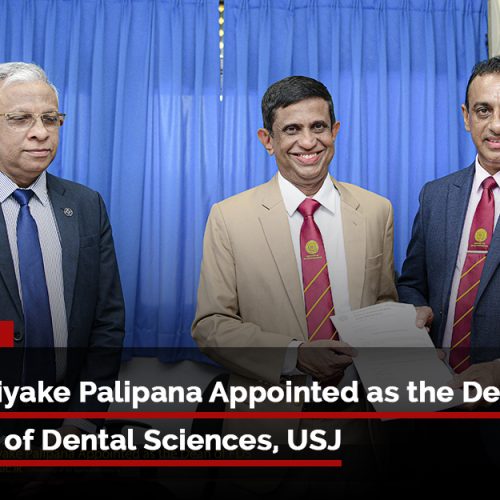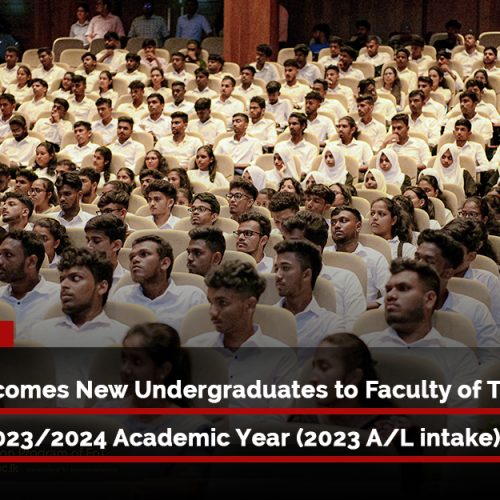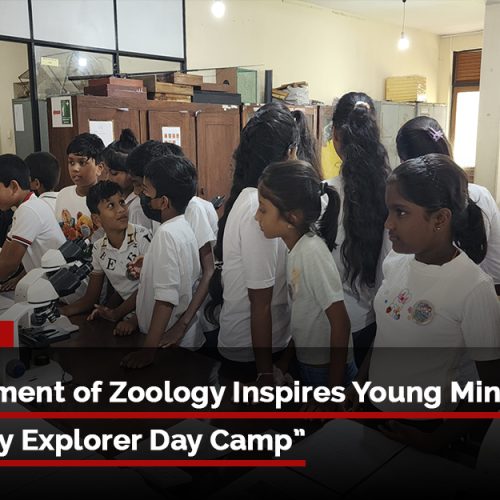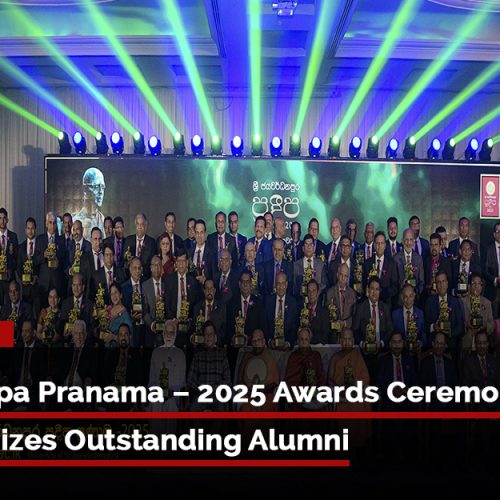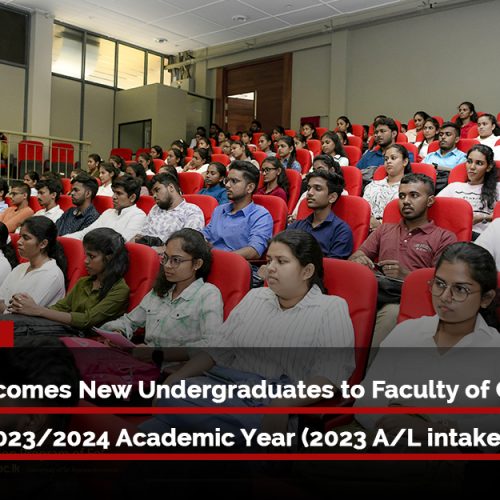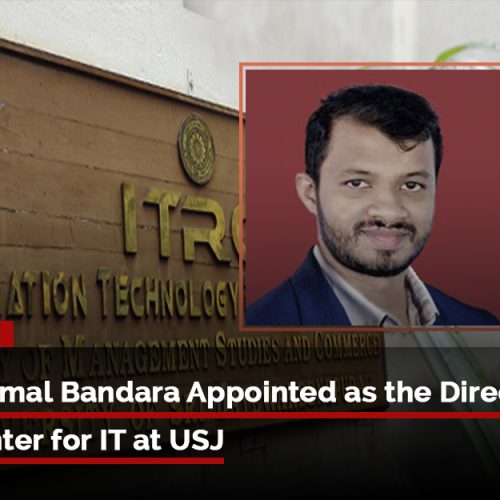As evidenced by the historical chronicles such as Deepavamsa and Mahavamsa, the field of education in Sri Lanka has a long history spanning over two thousand years. What characterizes this evolutionary trajectory is the distinctive association of the learning centres with major Pirivenas or monastic centres in the country. The Mahavihara (3rd Century B.C.), the Abhayagiri Mahavihara (1st Century B.C.) and the Jetawana Mahavihara (3rd Century A.D.) can be mentioned as institutions of higher learning that have exemplified the virtues of contemporary academic education. These educational institutions had served as monastery educational institutions in various parts of Sri Lanka where both the laity and the clergy had studied. These monasteries were later renamed as Pirivenas.
The University of Sri Jayewardenepura claims such historic lineage being first established as the Vidyodaya Pirivena in 1873 by the Most Ven. Hikkaduwe Sri Sumangala Thera. The reconstitutions, Vidyodaya Pirivena as Vidyodaya University of Ceylon in 1958, as Vidyodaya Campus of the University of Ceylon in 1972 and as the University of Sri Jayewardenepura in 1978, are main milestones of this evolutionary pathway. The Vidyodaya University established in 1959, under the Parliamentary Act No. 45 of 1958, with five faculties; Buddhist Studies, Philosophy, Languages, Arts, and Ayurveda, commenced its academic activities under the pioneering Vice Chancellorship of the Most Ven. Welivitiye Soratha Maha Thera.
Since then, the University of Sri Jayewardenepura has undergone significant changes, especially in the more recent past, showcasing its eager embrace of modernity. The new faculties of the university have not only increased its capacity and potential to serve the country as one of the leading centres of higher learning, but also have made it an institution that claims a high reputation for academic excellence.
“Prosper lives through education”
Driven by its vision “Prosper lives through education” and mission “Develop globally competent citizens through our education for a sustainable future, drawing inspirations from our cultural heritage and wisdom”, the University of Sri Jayewardenepura is home to13,000 undergraduate students thus becoming the largest university in the country in terms of student population. Presently, the university has eight Faculties; namely, Faculty of Humanities and Social Sciences, Faculty of Applied Sciences, Faculty of Management Studies and Commerce, Faculty of Medical Sciences, Faculty of Graduate Studies, Faculty of Technology, Faculty of Engineering and Faculty of Allied Health Sciences. The newest addition to this composition is the Faculty of Dental Sciences which was established in December this year, making it the ninth faculty of the university and the second faculty for dental sciences in the country. The Faculty of Technology with its state of the art faculty complex provides education in this most sought after field, and is the first technology faculty in the country. In keeping with the university’s pursuit for new horizons that can fulfil contemporary needs of the country and realize its developmental goals, plans are afoot to establish a Faculty of Urban and Aquatic Bio resources. Currently the University has 79 departments of study catering to various fields, with further fine-grained specializations, which continue to grow.
The university understands the need for strategic planning for optimal utilization and improvement of resources to provide an effective service for the advancement and dissemination of knowledge. This is envisioned in the Corporate Plan, prepared by taking into consideration both local and global contexts and developments, through an extensive process of consultation and conversation with all the stakeholders, with a stock-taking every five years. Over the years, the university has strived to improve the quality and relevance of its teaching, learning and research in line with local trends and international standards, thereby seeking a comfortable niche in the international market.
What makes the University of Sri Jayewardenepura an outstanding higher seat of learning in the country is its exceptional outreach through research, innovation, and community service. At present, the university has 23 research centres, established within the respective faculties and operated under committed and distinguished staff. They cover vital areas as water, materials, dengue, cancer, kidney, biotechnology and neurosciences, forestry and environment, management studies and commerce, robotics and intelligent systems, marine science, mindfulness and multidisciplinary studies, to name a few.
With the establishment of the university’s Research Council, all these research centres have been brought under its purview creating a standard research and development platform to streamline research-related activities. The university joins the national community through a broad-based agenda comprising numerous community service projects undertaken by both the staff and the students, workshops, donations, conferences, and other outreach activities, while its international affiliations can be seen in MoUs, study tours, student exchange programmes, collaborative research and international conferences. The university’s distinctive outreach and national and international contribution was nowhere so much felt and explicit than the crucial times we live in today at the height of the COVID-19 global pandemic.
Thus, the university’s outstanding role and contribution to research on COVID-19 has received global acclaim, while at national level, it has been playing a tremendous role in helping the country in data collection, PCR testing, and coordination with relevant authorities in matters of such national concern. In the years to come, the university aims to become one of the leading universities in South Asia, reaching further excellence in teaching and research, while preserving its traditional glory.
With such a legacy and a way forward, the University of Sri Jayewardenepura proudly holds its 46th Convocation on December 28, 29, and 30, 2021 at the BMICH, Colombo. This year, a total of 3,214 graduands will receive their degrees fulfilling one of their long-cherished dreams.
This number comprises 884 graduands from the Faculty of Humanities & Social Sciences, 554 from the Faculty of Applied Sciences, 1,201 from the Faculty of Management Studies & Commerce, 222 from the Faculty of Medical Sciences and 353 from the Faculty of Graduate Studies. The university administration has taken extra precautionary measures to hold this convocation by adhering to all health guidelines applicable to the present pandemic situation and thus to ensure the safety of all. Therefore, the participation of the academic staff will be limited. Nevertheless, the grandeur and simplicity that characterize this glorious event will remain undiminished.



